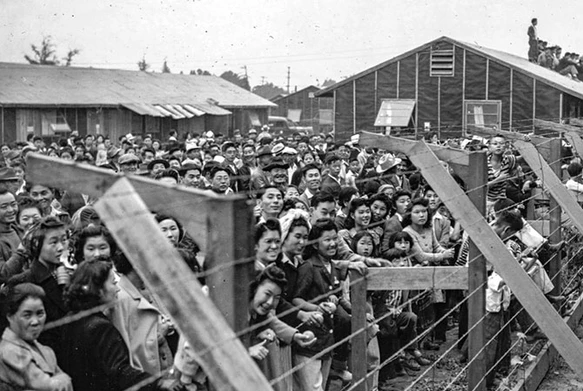On February 19, Forbes quietly published an article by a transgender writer comparing denying males the ability to participate on women’s sports teams to the internment of Japanese-Americans during World War Two.
Titled “Why Trans People Fear a Repeat of This Atrocity from 80 Years Ago,” the article purports to draw a direct comparison between the sporting bills currently rolling through various US states targeting play equity to the internment camps built for Japanese-Americans in 1942, incarcerating them on their own home soil because of their race.
Written by Dawn Ennis, a trans-identified male who has reportedly switched gender three times, the article tries to argue that the sports bills, as well as the high rates of mental illness amongst transgender youth, recall the horrors of the racist camps.
Ennis writes, “…the inability to use the bathroom that matches one’s authentic identity, the ban on competing as your true self and not being able to give everything you have to win … These are not that dissimilar to the oppression of 80 years ago when American citizens were rounded-up and moved far from home because of who they were.”
He also attempts to assert that the “hateful headlines” directed at UPenn swimmer Lia Thomas are also an example of trans oppression apparently akin to that of the Japanese-Americans during WW2.
Despite invoking the atrocity, Ennis does not seem to establish any relation between the experiences of Japanese-Americans in the 1940s to anything presently happening to transgender people in the United States today.

The “war relocation camps” were established by Franklin D. Roosevelt in 1942 and sustained until 1945. The laws targeted American-born people of Japanese heritage under the claim of trying to prevent “espionage” on American soil after Pearl Harbor.
In total, 120,000 Americans who were at least 1/16th Japanese were relocated form their homes into designated areas. Some were made to live in livestock barns and in places not fit for human habitation. In total, over 1,800 people died in the camps, largely as a result of tuberculosis, substandard sanitation, and starvation.
The US Government formally apologized to Japanese-American survivors of the camps for their trauma in 1988.
The details on these atrocities are lost as Ennis wraps the piece with a lengthy pitch inundating readers with statistics on trans youth and eating disorders, both of which he does not appear to be able to connect to the internment camps. He ends the article with the well-known George Santayana quote: “We are condemned to repeat history if we do not learn from it.”
Ennis, a biological male, first declared his transgender identity in 2013 while working as a producer at ABC. He divorced his wife of 17 years, began wearing “little black dresses” and wig to his office, and demanded co-workers refer to him by feminine pronouns. Months later in August, he would say that a “two day bout” of amnesia caused him to realise he was not transgender, and was comfortable being a male.
“I am writing to let you know I’m changing my name… to Don Ennis. That will be my name again, now and forever. And it appears I’m not transgender after all,” he wrote to his colleagues in 2013 explaining his detransition.
In May of 2014, Ennis returned to work dressed as a woman and claiming to be transgender, and has apparently been so ever since. He was fired from ABC shortly after his second gender change, but has been active with multiple other publications since and currently teaches journalism, public relations and advertising at the University of Hartford.
Reduxx is a newly-launched, independent source of pro-woman, pro-child safeguarding news and commentary. We’re able to continue our work exposing predators, standing up for women, and reporting the truth thanks to the generous support of our readers.
